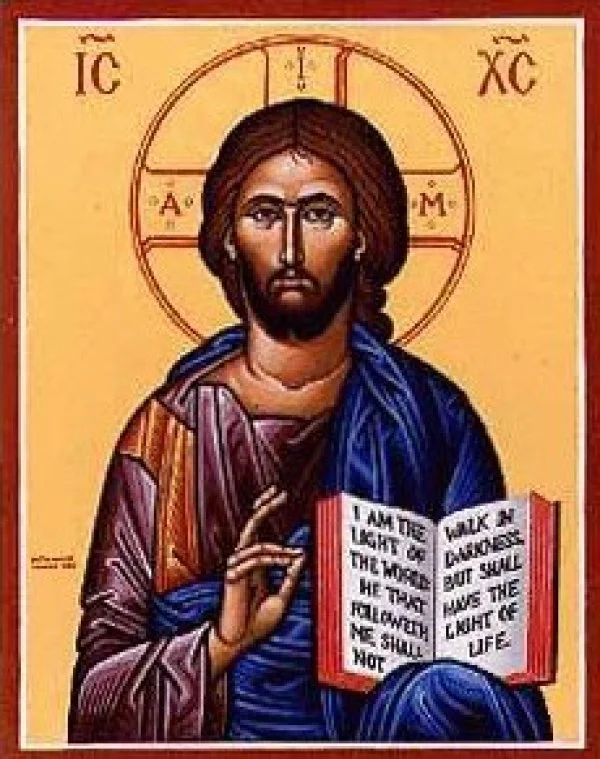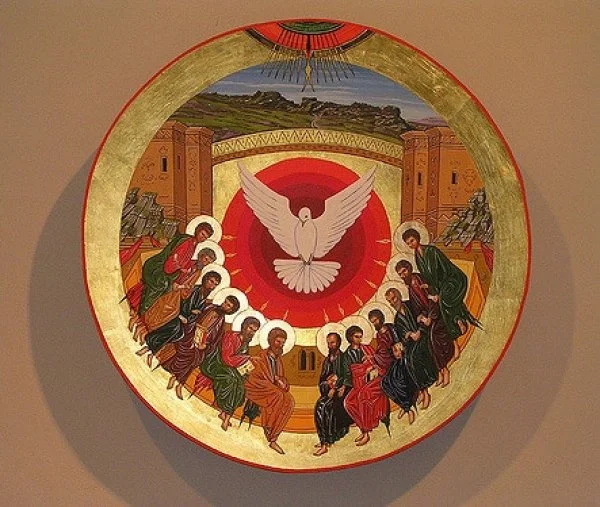- Français
- |
- Booklist
- |
- Week of Prayer
- |
- Links
- Areopagus - a forum for dialogue
- Academic journals
- Acronyms
- Bible tools
- Bibliographies
- Booksellers and publishers
- Churches
- Canadian church headquarters
- Directory of Saskatchewan churches
- Retreat centres
- Saskatchewan church and non-profit agencies
- Ecumenism.net Denominational links
- Anabaptist & Mennonite
- Anglican
- Baptist
- Evangelical
- Independent episcopal
- Lutheran
- Methodist, Wesleyan, and Holiness
- Miscellaneous
- Mormon
- Orthodox (Eastern & Oriental)
- Para-church ministries
- Pentecostal / charismatic
- Presbyterian & Reformed
- Quaker (Society of Friends)
- Roman & Eastern Catholic
- United and uniting
- Documents of Ecumenical Interest
- Ecumenical agencies
- Ecumenical Booklist
- Ecumenical Dialogues
- Glossary
- Human rights
- Inter-religious links
- Justice & peace
- Lectionaries
- Religious news services
- Resource pages
- Search Ecumenism.Net
- |
- Documents
- Ancient & Medieval texts
- Ecumenical Dialogues
- Interreligious
- Anabaptist & Mennonite
- Anglican
- Evangelical
- Lutheran
- Orthodox
- Reformed & Presbyterian
- Roman & Eastern Catholic
- United & Uniting
- Miscellaneous churches
- Canadian Council of Churches (CCC)
- Conference of European Churches (CEC)
- Interchurch Families International Network (IFIN)
- National Council of Churches in Australia (NCCA)
- Lausanne Committee for World Evangelism (LCWE)
- World Council of Churches (WCC)
- Other ecumenical documents
Church traditions
Documents from ecumenical agencies
- |
- Dialogues
- Adventist-Reformed
- African Instituted Churches-Reformed
- Anglican-Lutheran
- Anglican-Orthodox
- Anglican-Reformed
- Anglican-Roman Catholic
- Anglican-United/Uniting
- Baptist-Reformed
- Disciples of Christ-Reformed
- Disciples of Christ-Roman Catholic
- Evangelical-Roman Catholic
- Lutheran-Mennonite
- Lutheran-Mennonite-Roman Catholic
- Lutheran-Reformed
- Lutheran-Roman Catholic
- Mennonite-Reformed
- Mennonite-Roman Catholic
- Methodist-Reformed
- Methodist-Roman Catholic
- Oriental Orthodox-Reformed
- Orthodox-Reformed
- Orthodox-Roman Catholic
- Pentecostal-Reformed
- Prague Consultations
- REC-WARC Consultations
- Roman Catholic-Lutheran-Reformed
- Roman Catholic-Reformed
- Roman Catholic-United Church of Canada
- |
- Quick links
- Canadian Centre for Ecumenism
- Canadian Council of Churches
- Ecumenical Shared Ministries
- Ecumenism in Canada
- Interchurch Families International Network
- International Anglican-Roman Catholic Commission for Unity and Mission
- Kairos: Canadian Ecumenical Justice Initiatives
- North American Academy of Ecumenists
- Prairie Centre for Ecumenism
- Réseau œcuménique justice et paix
- Week of Prayer for Christian Unity
- Women's Interchurch Council of Canada
- World Council of Churches
- |
- Archives
- |
- About us
The Challenges of Ecumenism
— Aug. 29, 201729 aoüt 2017When we think of Church teachings that are uncomfortable to discuss and difficult to live up to these days our minds tend to go to controversial issues like that of contraception, homosexuality, gender and so forth. Yet, in many ways, the Church’s views on ecumenism are for many even more uncomfortable. On this topic, however, it is all too easy to say yes, yes with one’s lips, while denying and undermining this teaching in practice.
Ecumenism is the attempt to strengthen unity between the diverse Christian Churches through dialogue about doctrine, prayer in common, cooperation in good works and other means that deepen mutual understanding and growth. In the case of the Catholic Church, these endeavours are also motivated by a desire that our Churches may unite in full communion, however remote that hope may seem to our eyes here and now.
A key to the possibility of any ecumenism lies in a few basic realizations. The first is that we are all genuinely Christians, baptized into the body of Christ. This entails that there is always more that unites us than what divides us. The important essentials of the faith: the Trinity, the Incarnation, and the role that baptism plays in drawing us into the participation of the divine life are all unifying features of Christian life. In this respect, we should be grateful for the profound unity that already does exist among the majority of Christian communities (Unitatis Redintegratio, no. 3).
A second important requirement for ecumenism is the conviction that we can learn from one another. That in some respects our Christian sisters and brothers in other communions have achieved solutions to our shared problems that transcend our own, that paths of holiness have been nurtured there, in some instances, more effectively than in our own home. We have much to offer, but we also have many things to learn. It is undoubtedly this claim that can be so challenging for us as Catholics.
Here our language, which is true as far is it goes can also hold us back. We are accustomed to saying that the fullness of truth subsists in the Catholic Church, while other Christian churches possess aspects of the truth. Likewise, the Catechism states:
“Christ’s Spirit uses these Churches and ecclesial communities as means of salvation, whose power derives from the fullness of grace and truth that Christ has entrusted to the Catholic Church” (Cathechism of the Catholic Church, no. 819).
These statements could be misread to mean that whatever truth has been discovered already exists within the Catholic Church as the earthly institution we witness here and now, or that whatever holiness is found in other Christian Churches is already present within the Catholic Church as a human institution and brought about by it in all the others. Such a reading would, however, make ecumenism irrelevant and unnecessary, a fact that likely accounts for a good deal of the discomfort some of the Catholic faithful feel with it. On such a view the Catholic Church has nothing to receive or learn from its sister Churches, and what we call ecumenism could be nothing other than a kinder and gentler proselytism.
The key to resolving this problem is to be found in two further facts. First, the Catechism’s recognition that the truth and grace of all Churches, Catholic or otherwise, flows from Christ. Whatever truth or goodness any of us possesses has been received through the life, death, and resurrection of our Saviour. Second, the Catholic Church that possesses the truth of revelation and the means of sanctification and salvation is the Church in her subsistent and supernatural personality which transcends that of her members (see Ut Unum Sint, no. 3, Maritain, Church of Christ, ch. 3).
Just as we can profess in the Creed that the Church is holy and one without denying the sins and division that exist among her members here on earth, so too we can assert the Church has the fullness of truth in its supernatural reality, while recognizing each of us as her members is lacking in many areas that our fellow Christians may understand better. Likewise we can recognize that the Church herself is holy, yet each of us as her members falls short of being “perfect as your Father in heaven is perfect”, and can find examples of holiness in our fellow Christians that outstrips our own, even while insisting that this holiness has its origins in Christ and is transmitted in mysterious and wonderful ways through the Catholic Church understood in her supernatural fullness.
These are, I take it, a few of the principles necessary to understand if ecumenism is to function well. They are considerations that I’ve had occasion to reflect upon often as I have co-chaired a local ecumenical dialogue between the Archdiocese of Edmonton and Edmonton members of the Lutheran Church of Canada, as well as through the process of developing a Certificate in Anglican Studies at Newman in collaboration with the Anglican Diocese of Edmonton. Such encounters simply are not possible or fruitful if begun from the assumption that we have the fullness of truth and the means of salvation and that whatever small share our partners might have in these really comes from us.
Such misconceptions can be fostered by our tendency to point to the ecclesial institution. We are never, after all, claiming that it is ourselves personally who have the fullness of the truth and the means of salvation. But, then the Church as it is present in this world consists precisely of the individual members who make it up and the grace that animates them, and none of us however saintly is so filled with truth and holiness that we are the source of it in all others. It is only the Church as the body of Christ in her supernatural personality that can make this claim, and all of us are merely a part of this glorious reality.
This can also be confirmed if we look at instances of ecumenism closer to home. It is all too easy to think that ecumenism is a matter for professional theologians and leaders in the Vatican or Archdiocese. But, a moment’s thought makes it clear that ecumenism is a daily task we are all engaged in a variety of ways. Who among us doesn’t have a family member with a spouse from another denomination? Which of us doesn’t have friends and neighbours who belong to other Churches? When we relate to these people we know as fellow Christians we are engaging in ecumenical acts in which any personal claim to have the fullness of the truth and holiness would be unimaginable for us. We have no trouble learning from a Baptist mother-in-law or an Evangelical colleague at work who we know to be more learned and earnest than ourselves. In a similar way, our ecclesial community as an earthly body learns from and can grow through the example of other Christian Churches. They have lessons to teach us and gives to provide that genuinely come from Christ (Cathechism of the Catholic Church, no. 819), and which we could not learn from our fellow Catholics.
This, of course, has nothing to do with watering down the faith or seeking to find a lowest common denominator to which everyone can agree. That would be a cop-out and defeat the very purpose of authentic ecumenism, for it would undermine the possibility of the genuine learning and unity that can come from dialogue with our fellow Christians. Genuine ecumenical engagement should lead us to become more fully immersed in our own faith, not less; for only if each is fully committed to their faith, and genuinely interested in learning and living the truth come what may, can true dialogue occur. Only then can we hope to realize Jesus’ wish that “they may all be one”.

 Permanent link: ecumenism.net/?p=9742
Permanent link: ecumenism.net/?p=9742
Categories: Opinion • In this article: Catholic, ecumenism

 Lien permanente : ecumenism.net/?p=9742
Lien permanente : ecumenism.net/?p=9742
Catégorie : Opinion • Dans cet article : Catholic, ecumenism





